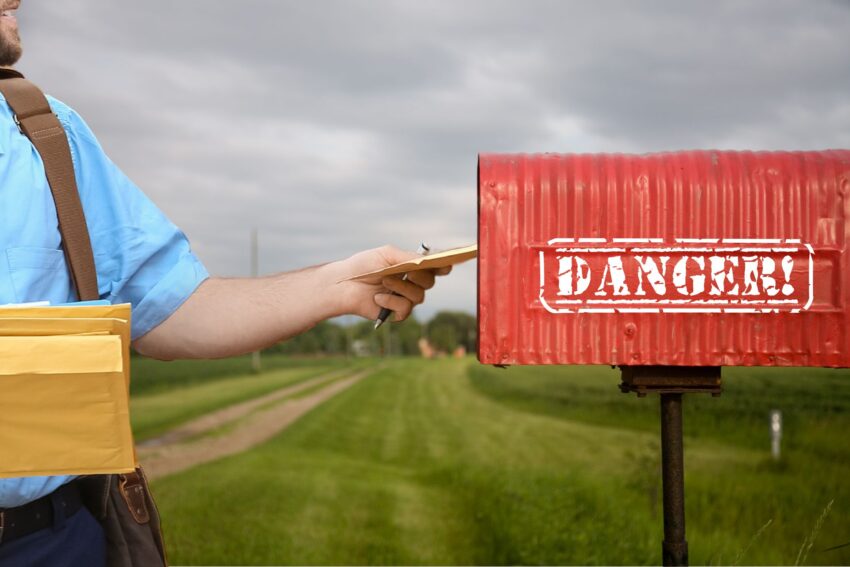In recent years, a peculiar and unsettling phenomenon has reemerged across the United States, with Texas at the forefront of the latest wave: unsolicited packages of seeds arriving in mailboxes, primarily shipped from China. As of early 2025, Texas Agriculture Commissioner Sid Miller has sounded the alarm, reporting at least five incidents statewide, including a case in Clute, Texas, where a package contained unidentified seeds and a mysterious liquid. This echoes a larger episode in 2020 when tens of thousands of Americans received similar packages, sparking widespread concern. While the U.S. Department of Agriculture (USDA) has often attributed these incidents to “brushing scams”—where sellers send unsolicited items to falsify positive reviews—the potential for a more sinister motive, such as biowarfare targeting U.S. agriculture, cannot be entirely dismissed.
The Threat to U.S. Agriculture
The arrival of these mystery seeds poses a tangible risk to American farming, particularly in agricultural powerhouses like Texas. The USDA and state officials have identified some of these seeds as invasive species, such as the Indian lotus, which can wreak havoc on native ecosystems. Invasive plants can outcompete crops, introduce diseases, and disrupt soil health, potentially leading to devastating economic losses. In 2020, the USDA identified a mix of species—including cabbage, lavender, and mint—but warned that even seemingly benign seeds could carry pathogens or be coated with harmful substances like insecticides, posing a biosecurity threat.
If these seeds were part of a deliberate biowarfare strategy, the implications would be staggering. Agriculture is a cornerstone of the U.S. economy, and a coordinated effort to introduce destructive species or pathogens could undermine food security, destabilize rural communities, and strain national resources. Historical precedents for biowarfare exist—think of the use of plague-ridden fleas during World War II or attempts to sabotage livestock with anthrax. Seeds, though less overt, could serve as a stealth weapon, germinating quietly until their damage becomes irreversible. The fact that some packages slip past U.S. Customs without proper documentation only heightens the plausibility of this theory.
Alternative Theories
While biowarfare is a chilling possibility, other explanations deserve consideration. The prevailing theory, supported by the USDA, is the brushing scam: Chinese vendors send cheap seeds, often mislabeled as jewelry or toys, to boost their online ratings. This aligns with reports from Texans who ordered items like dog toys from platforms like Temu, only to receive seeds instead. Another possibility is simple negligence—e-commerce errors leading to mis-shipments of agricultural products. Some speculate industrial espionage, where foreign entities might seek to study U.S. responses to biosecurity threats, though this seems less likely given the randomness of the recipients.
Could it be a prank or a social experiment? Perhaps, but the scale and recurrence suggest intent beyond mischief. Each theory has flaws: brushing doesn’t fully explain the inclusion of liquids or the persistence across years, while biowarfare lacks concrete evidence of state-sponsored malice. The truth may lie in a hybrid scenario—opportunistic scams exploiting lax regulations, with unintended biosecurity consequences.
Farmers’ Defense: Protecting the Harvest
For farmers, especially in Texas where agriculture drives billions in revenue, vigilance is key. Here’s how they can safeguard their livelihoods:
- Report and Contain: If an unsolicited package arrives, don’t open it or discard it in a way that risks germination (e.g., trash or compost). Seal it in a plastic bag and contact your state’s Department of Agriculture immediately—Texas farmers can call 800-835-5832.
- Avoid Planting Unknown Seeds: Tempting as it might be to test the mystery seeds, the risks outweigh curiosity. Invasive species or pathogens could spread from a single planting, devastating crops and neighboring farms.
- Strengthen Biosecurity: Regularly inspect fields for unusual plants or signs of disease. Use certified seeds from trusted sources and maintain strict hygiene protocols for equipment and workers to prevent cross-contamination.
- Advocate for Policy: Farmers can push for tighter import regulations and better customs screening to close loopholes that allow these packages to enter unchecked.
- Stay Informed: Collaborate with local agricultural extensions and the USDA to stay updated on emerging threats and response strategies.
Conclusion
The mystery seeds from China remain an enigma—part scam, part potential peril. While the biowarfare hypothesis stirs unease, it’s the uncertainty that poses the real challenge. Are these packages a calculated attack on U.S. agriculture, a sloppy e-commerce ploy, or something else entirely? Until definitive answers emerge, farmers must treat every unsolicited seed as a Trojan horse, capable of unleashing chaos on their fields. In an era of global tensions and technological subterfuge, the stakes for America’s breadbasket have never been higher.


